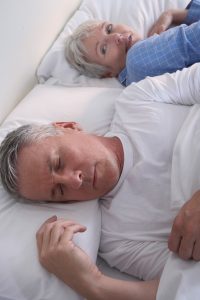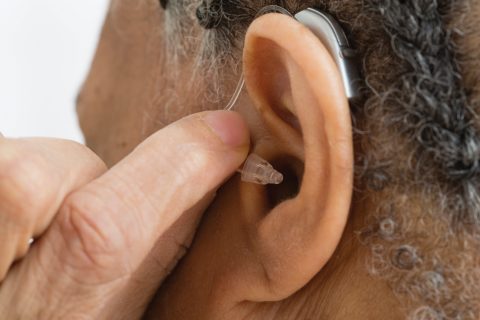Snoring may seem like a pesky yet minor problem, but it can be much more serious than some people know. Although snoring is a common problem among all ages and genders, the National Sleep Foundation says that men are twice as likely to snore as women, and snoring can worsen with age.
 The aging process can lead to a relaxation of the throat muscles, resulting in snoring. Furthermore, the NSF says anatomical abnormalities of the nose and throat, illness and other factors may also contribute to snoring. Drinking alcohol, which can have an effect similar to muscle relaxants, in the evening can make snoring worse.
The aging process can lead to a relaxation of the throat muscles, resulting in snoring. Furthermore, the NSF says anatomical abnormalities of the nose and throat, illness and other factors may also contribute to snoring. Drinking alcohol, which can have an effect similar to muscle relaxants, in the evening can make snoring worse.
While many people may think snoring is a mere nuisance, it actually may be a symptom of obstructive sleep apnea. Over time, apnea can be associated with high blood pressure and increased risks of heart attack, stroke or death, advises WebMD.
Now there is new evidence that those with obstructive sleep apnea may be at a higher risk of developing Alzheimer’s disease as well. A new study published in the journal Neurology found that people with sleep apnea tended to develop memory problems and other signs of cognitive impairment earlier than people without such sleep disorders. Richard Osorio, MD, a research assistant professor of psychiatry at the NYU Center for Brain Health, found that, among 2,000 people studied, those who reported having sleep apnea or snoring tended to develop signs of mild cognitive impairment, including memory lapses and slower speed on cognitive skills, about 12 years earlier on average than those who didn’t report any sleep-related breathing issues. Mild cognitive impairment often precedes dementia related to Alzheimer’s disease.
Some researchers believe snoring and sleep apnea may contribute to a buildup of the toxic protein in the brain called beta-amyloid, which is a hallmark of Alzheimer’s disease and other dementias.
If snoring has become problematic, men are urged to visit a doctor or sleep specialist to see which therapies can be instituted to help improve sleep and overall health.






